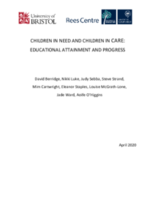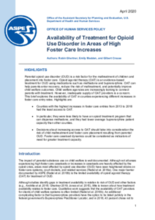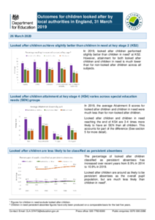Displaying 441 - 450 of 2221
This study intended to identify factors associated with receipt of mental health services by caregivers substantiated for maltreatment.
This project aimed to identify factors that might explain the ‘attainment gap’ for Children in Need (CIN) and Children in Care (CIC) in England.
This paper presents a participatory research study that explored the experiences of a group of Aboriginal Australian parents who have had their children removed by child protection authorities in one Australian state, New South Wales.
Parental opioid use disorder (OUD) is a risk factor for the maltreatment of children and placement into foster care. This brief explores the availability of opioid agonist therapy (OAT) in U.S. counties experiencing different increases in foster care entry rates.
The objective of this study is to identify situations and behaviors occurring during contact visits that are likely to have an impact on a foster child's well‐being.
In this study, the authors examined (a) whether institutional rearing is associated with continued social communication (SC) deficits into adolescence; (b) whether early placement into foster care mitigates risk for SC problems; and (c) associations between SC and psychopathology from middle childhood (age 8) to adolescence (age 16).
This statistical release provides national and local authority (LA) level information on the outcomes for children who have been looked after continuously for at least 12 months at 31 March 2019, by local authorities in England.
The study reported here was undertaken as part of a children’s health needs assessment in an English local authority. It sought to understand why looked after children experience such high levels of poor mental health and make growing demands on therapeutic services.
Using an ethnographic approach including interviews, walks, observation and photomap making, this article reports on the findings from a unique pilot study of the social and educational lives of young foster children (aged 0‒4) in an inner London borough.
Using an ethnographic approach including interviews, walks, observation and photomap making, this article reports on the findings from a unique pilot study of the social and educational lives of young foster children (aged 0‒4) in an inner London borough.



